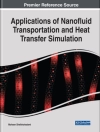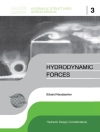This book provides a comprehensive reference for both academia and industry on the fundamentals, technology details, and applications of Advanced Driver-Assistance Systems (ADAS) and autonomous driving, an emerging and rapidly growing area. The book written by experts covers the most recent research results and industry progress in the following areas: ADAS system design and test methodologies, advanced materials, modern automotive technologies, artificial intelligence, reliability concerns, and failure analysis in ADAS. Numerous images, tables, and didactic schematics are included throughout. This essential book equips readers with an in-depth understanding of all aspects of ADAS, providing insights into key areas for future research and development.
• Provides comprehensive coverage of the state-of-the-art in ADAS
• Covers advancedmaterials, deep learning, quality and reliability concerns, and fault isolation and failure analysis
• Discusses ADAS system design and test methodologies, novel automotive technologies
• Features contributions from both academic and industry authors, for a complete view of this important technology
Table des matières
Chapter 1 – Introduction.- Chapter 2 – Basics and Applications of AI in ADAS and Autonomous Vehicles.- Chapter 3 – Computing Technology in Autonomous Vehicle.- Chapter 4 – Overview of Packaging Technologies and Cooling Solutions in ADAS market.- Chapter 5 – Flash Memory and NAND.- Chapter 6 – Interconnect.- Chapter 7 – Cameras in Advanced Driver-Assistance Systems and Autonomous Driving Vehicles.- Chapter 8 – Lidar technology.- Chapter 9 – Radar Technology.- Chapter 10 – Electrochemical Power Systems for Advanced Driver-Assistant Vehicles.- Chapter 11 – In-Vehicle Display Technology.- Chapter 12 – Disk drive for data center storage.-Chapter 13 – Role and responsibility of hardware reliability engineer.- Chapter 14 – Failure Analysis in Advanced Driver Assistance Systems.- Chapter 15 – Corrosion mechanisms of copper and gold ball bonds in semiconductor packages.
A propos de l’auteur
Dr. Yan Li is currently a senior staff engineer in Corporate Quality Network of Intel Corporation located in Chandler, Arizona. Dr. Li received her Ph.D. degree in Materials Science and Engineering from Northwestern University in 2006 and her M.S and B.S degree in Physics from Peking University in 1999 and 1996, respectively. Dr. Li has been actively involved in numerous microelectronic packaging-related technical solutions and focusing on the quality and reliability of electronic packages, fundamental understanding of failure modes and failure mechanisms of electronic packages, developing new tools and techniques for fault isolation and failure analysis of advanced electronic packages. Dr. Li is a senior member and contributor of many international professional associations, such as Minerals Metals and Materials Society (TMS), American Society for Metals (ASM), and Electronic Device Failure Analysis Society (EDFAS). She has been appointed as TMS and International Symposium for Testing and Failure Analysis (ISTFA) annual conference organizer since 2011. Dr. Li joined the technical committee of International Symposium on the Physical and Failure Analysis of Integrated Circuits (IPFA) since 2018. She was granted the TMS EMPMD Young Leader Professional Development Award in 2014. Dr. Li has published over 20 papers and two patents in the microelectronic packaging area. She is the co-editor of a semiconductor industry highly recognized book: “3D Microelectronic Packaging: From Fundamentals to Applications” by Springer.
Dr. Hualiang Shi is the lead hardware reliability engineer at Lyft’s Level 5 self-driving division. Before Lyft, Dr. Shi spent more than fifteen years in the field of semiconductor and consumer electronics. His job roles included Integration Engineer at Apple’s Silicon Engineering Group, Senior Reliability Engineer at Apple’s Product Integrity Group, Staff Quality and Reliability Engineer at Intel’s Corporate Quality Network, Senior Process Engineer at Intel’s Silicon Integration and 3D Package Integration Group, Process Engineer at Intel’s Epoxy Module, and Internship at Tokyo Electron Limited. Dr. Shi got his Ph.D. degree in Physics from the University of Texas at Austin at 2010 and B.S degree in Physics from the University of Science and Technology of China at 2003. Dr. Shi was technical committee for “3D/Packaging Committee in 2016 IEEE International Reliability Physics Symposium (IRPS)” and “Packaging and Assembly Level FA in 43rd International Symposium for Testing and Failure Analysis (2017)”, served as journal reviewers for fourteen journals, published sixteen papers, and held four patents in the field of microelectronics. Dr. Shi also published three book chapters, including “Fundamentals and failures in Die preparation for 3D packaging” in by Springer, “Characterization of Plasma Damage for Low k Dielectric Films” in by Pan Stanford and CRC Press (Taylor & Francis), and “Plasma Processing of Low-k Dielectrics” in by John Wiley & Sons, Ltd.












